How did our species succeed in the battle for dominance Why did our foraging ancestors come together to create cities and kingdoms How did we come to believe in gods nations and human rights to trust money books and laws and to be enslaved by bureaucracy timetables and consumerism And what will our world be like in the millennia to come
Sapiens: A Brief History of Humankind
KShs 595.00
How did our species succeed in the battle for dominance Why did our foraging ancestors come together to create cities and kingdoms How did we come to believe in gods nations and human rights to trust money books and laws and to be enslaved by bureaucracy timetables and consumerism And what will our world be like in the millennia to come
1 in stock
| SKU: | 9780099590088 |
|---|---|
| Categories: | Historical Biographies, History books |
Related products
-
Eastern Approaches-FITZROY MACLEAN
KShs 400.00The classic true adventure story of a man who, by the pen, sword, and diplomatic pouch, influenced some of the most significant events of our era. Fitzroy Maclean recounts his extraordinary adventures in Soviet Central Asia; in the Western Desert, where he specialized in hair-raising commando raids behind enemy lines; and with Tito’s partisans during the last months of the German occupation of Yugoslavia. An enthralling narrative brilliantly told.
-
Salamis : The Greatest Naval Battle of the Ancient World,
KShs 795.00“Salamis” tells the story of possibly the greatest naval battle of the ancient world. Involving hundreds of thousands of combatants and well over a thousand triremes – the ranking naval war engine of the time – it was the culminating battle in a twenty-year struggle between the Persian Empire and the Greeks. Against all odds – and with the help of a little treachery, a brilliant strategy and a lucky wind – the Greeks defeated the Persians, and with it began the roll-back of the Persian Empire, and the beginning of the Hellenic imperium. This epic tale is told through the individual stories of twelve characters, six form each side, each of which played a major role in the battle and its aftermath.
-
The Dreadful Judgement
KShs 650.00If the story that struck the Grand Banks off Newfoundland in October 1991 was “The Perfect Storm”, the fire that destroyed London in September 1666 was “The Perfect Fire”. A fire needs only three things: a spark to ignite it, and the fuel and oxygen to feed it. In 1666, a ten-month drought had turned London into a tinderbox. The older parts of the city were almost entirely composed of wood-frame buildings and shanties. The riverside wharves were stack with wood, coal, oil, tallow, hemp, pitch, brandy, and almost every other combustible material known to seventeenth century man. On 2 September 1666, London ignited. Over the next five days the gale blew without interruption and the resulting firestorm destroyed the whole city. “The Dreadful Judgement” tells the true, human story of the Great Fire of London through the eyes of the individuals caught up in it. It is a historical story combining modern knowledge of the physics of fire, forensics and arson investigation with the moving eye-witness accounts to produce a searing depiction of the terrible reality of the Great Fire of London and its impact on those who lived through it.
-
In His Father’s Footsteps
KShs 400.00As the Americans liberate the Buchenwald concentration camp, among the survivors are teenagers Emmanuelle and Jakob, who fell in love despite the suffering surrounding them. With help, they make their way to New York, resolved to make a new life on the Lower East Side, working at gruelling, poorly paid jobs.
Decades later, Jakob has achieved enormous success, showing his son Max that America is truly the land of opportunity. Max is a Harvard graduate with friends among the wealthiest families in the world, and he chooses a perfect bride to start the perfect American family.
Max’s lavish lifestyle is unimaginable to his cautious, old-world parents. But after the birth of his children, and with a failing marriage, he fears his wife is keeping secrets.
KShs 795.00 -
Einstein His Life & Universe By: Walter Isaacson
KShs 1,695.00Einstein was a rebel and nonconformist from boyhood days, and these character traits drove both his life and his science. In this narrative, Walter Isaacson explains how his mind worked and the mysteries of the universe that he discovered.
-
Churchill-by Ashley Jackson
KShs 700.00In a much-acclaimed account, Jackson describes the contours and contradictions of a remarkable life and a career he describes as ‘Winston Churchill’s appointment with destiny’.
-
Violent Politics: A History of Insurgency, Terrorism, and Guerrilla War, from the American Revolution to Iraqer
KShs 1,500.00Guerrilla warfare is not just the tool of modern-day terrorists in the Middle East. Its roots stretch back to our very own revolution.
In Violent Politics, William R. Polk takes us on a concise, brilliant tour of insurgencies throughout history, beginning with America’s own struggle for independence. Continuing on, Polk explores the role of insurgency in other notable conflicts—including the Spanish guerrilla war against Napoleon, the Irish struggle for independence, the Algerian War of National Independence, and Vietnam—eventually landing at the ongoing campaigns in Afghanistan and Iraq, where the lessons of this history are needed more than ever.
-
Remaking Mutirikwi: Landscape, Water and Belonging
KShs 9,100.00Finalist for the African Studies Association 2016 Melville J. Herskovits Award
The Mutirikwi river was dammed in the early 1960s to make Zimbabwe’s second largest lake. This was a key moment in the Europeanisation of Mutirikwi’s landscapes, which had begun with colonial land appropriations in the 1890s. But African landscapes were not obliterated by the dam. They remained active and affective. At independence in 1980, local clans reasserted ancestral land claims in a wave of squatting around Lake Mutirikwi. They were soon evicted as the new government asserted control over the remaking of Mutirikwi’s landscapes. Amid fast-track land reform in the 2000s, the same people returned again to reclaim the land. Many returned to the graves and ruins of past lives forged in the very substance of the soil, and even incoming war veterans and new farmers appealed to autochthonous knowledge to make safe theirresettlements. This book explores those reoccupations and the complex contests over landscape, water and belonging they provoked. The 2000s may have heralded a long-delayed re-Africanisation of Lake Mutirikwi, but just as African presence had survived the dam, so white presence remains active and affective through Rhodesian-era discourses, place-names and the materialities of ruined farms, contour ridging and old irrigation schemes. Through lenses focused on the political materialities of water and land, this book reveals how the remaking of Mutirikwi’s landscapes has always been deeply entangled with changing strategies of colonial and postcolonial statecraft. It highlights howthe traces of different pasts intertwine in contemporary politics through the active, enduring yet emergent, forms and substances of landscape.
Joost Fontein is Director of the British Institute in Eastern Africa and Lecturer in Social Anthropology at the University of Edinburgh.
Published in association with the British Institute in Eastern Africa.

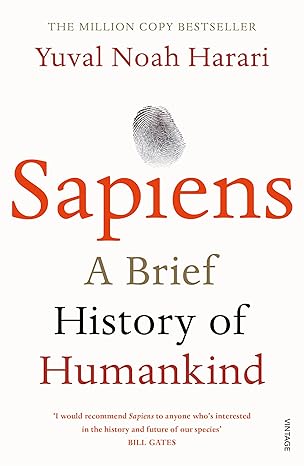
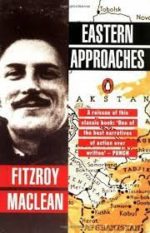
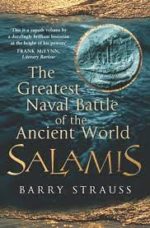


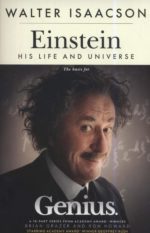


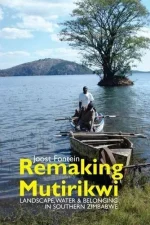
Be the first to review “Sapiens: A Brief History of Humankind”